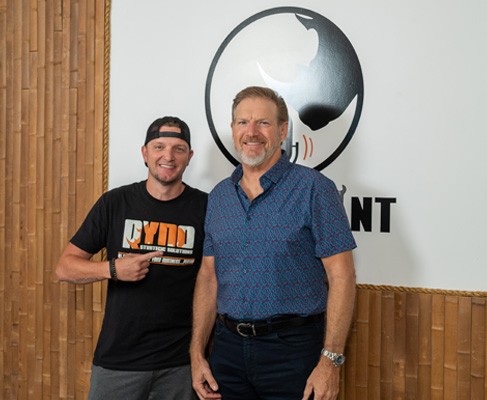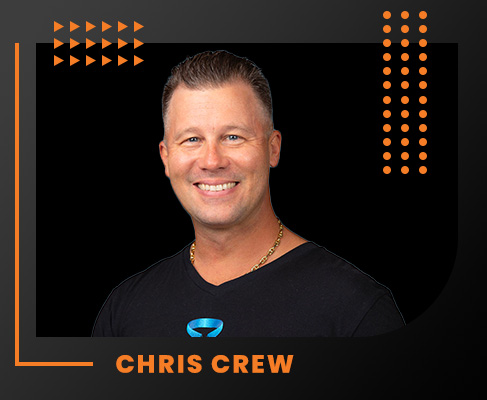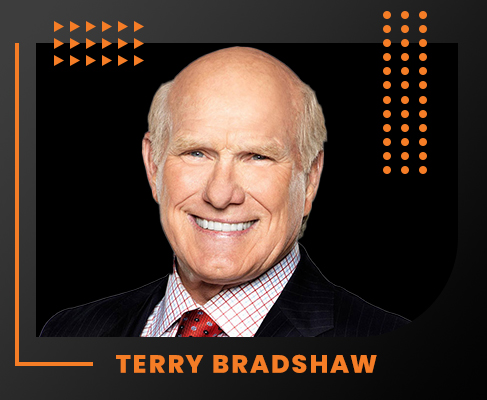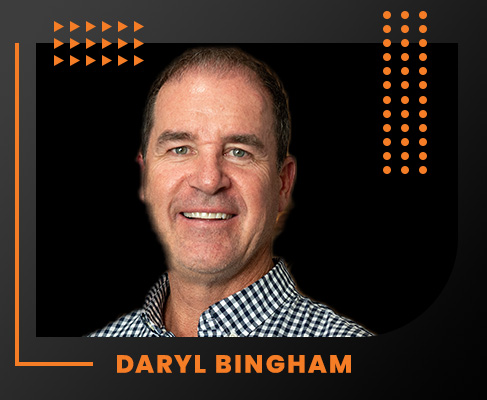Guess who’s back! Ken Goodrich, CEO of Goettl returns to the podcast and this time, he’s here to give a masterclass on what you need to understand about the private equity (PE) game.
People often ask Ken why he shares his “secrets”. Why he joins the podcast to give away his knowledge and everything he’s learned over the years. Why he loves to participate in the annual RYNOx events. In 1988, Ken was struggling with his business in a major way. He didn’t know what to do, and he was down to his last dollar, so to speak. Flipping through a trade magazine, he happened upon an ad for an ACCA convention in San Antonio. In desperation to try anything, he used his last few hundred dollars to book a flight to the conference. He immediately met a few people, and after sharing where he was at started to make connections. Started learning. These guys helped Ken get going in the right direction, and he flew back and started turning the ship around.
It’s since then been a huge key practice of Ken’s to connect with other industry leaders to learn and share best practices as part of his currency to pay it forward to the industry. He wants to create an environment where everyone can succeed. Decades ago, Ken was offered a hand. Now, he’s extending one back.
A Quick Ken Recap
If you’ve been listening to the podcast or reading our blogs for a while now, you’re no doubt familiar with Ken’s 1,000 day plan. Back in 2018, Goettl partnered with a major PE firm. Ken and his team set a 1,000 day goal to 10x the value of Goettl, and they reached their goal early – an over 500MM mark.
Two years ago, Ken also started a journey to improve his own mental and physical health. On July 27th of this year, it marked the two-year anniversary of that journey. Ken lost 100 pounds and has kept it off, staying faithful to getting on that scale and maintaining his routine of walking every day. He set a goal, made a plan, and used the same strategy one would to grow a business and applied it to his health. And it worked!
Now, Ken and Goettl have partnered with a new PE firm to get to an even higher level. Before we get to that, we’re going to dive in to what Ken has to say about the world of M&A and private equity.
A Refresher Course on Private Equity
If you own a business in the home services industry, you’re almost certainly familiar with private equity groups. They likely send you letters, ring your phone lines, and knock on your door every single day. But what is there to understand? Is it worth looking into? When is the right time to consider a partnership? What is this whole game about, really?
Ken’s initial disclaimer is that he isn’t a lawyer or financial advisor. He’s a self-proclaimed “buttcrack HVAC guy” who has been around and seen a lot of things that most others in the industry haven’t seen. If you’re relying on private equity to sell the family business, talk to the experts.
Defining Private Equity
That said, the term “private equity” just means it’s an investment made by a private company, not a public. Private equity has similar characteristics to the stock market – you’re buying and selling businesses based on their valuations instead of the profits of the business. It’s about investing in a company and growing the returns so the business becomes more valuable, and setting it on a course to be maximally valuable in the market at the right time so people are willing to pay higher multiples of the earnings than the previous investment.
PE is a consistent investment vehicle. It really hasn’t been around that long, either – maybe 40 years or so. What these investment groups have discovered is that investing in these private businesses (like HVAC companies) where someone has found a niche and has a model and management team can pay good dividends. By investing in the company with new capital for growth and some intellectual capital to add to the management team, they can help lead it in a new direction (often in tandem with acquisitions and/or services) to make it more valuable. Then, they sell the enterprise for a profit. So the simple formula is buy/invest, grow, sell, repeat.
Where Does All This Money Come From?
To take a step further, most private equity funds get their money from things like pension funds, retirement funds, etc. People invest in a fund, and then those responsible set out to buy businesses, grow them, and sell them with a profit. Most PE groups take around 20% of the profits, and then 80% or so gets returned to the fund to be reinvested and distributed amongst the investors. The cycle repeats over and over, with the goal of outpacing inflation and maximizing returns. The bottom line here is the money has to get invested somewhere – it can’t just sit still. That’s why PE firms are always looking for opportunities to invest, and for the last few years, the home services industry has been hot on the radar.
Why Would I Consider Private Equity?
There’s no shortage of hesitancy and concerns for contractors when it comes to private equity, and understandably so! Things like wanting to keep your staff in place, not wanting to work for someone else or report to a board…there are plenty of legitimate reasons to not want to dive right in and accept an LOI. Are there different variations of partnerships? Is everything these groups say true, or is it all just a sales pitch?
Ken says it’s wise to be concerned. First, you have to understand what you want out of the deal. A few times, Ken simply sold businesses because he didn’t know what else to do. He had hit a wall and didn’t have the capital or a plan to grow. Business is hard. You get stressed out, and it’s a grind a lot of the time. Ken has sold just to exit and get out from under it all. He monetized his assets (got the cash), and relieved himself from the pain (exited). A lot of PE groups want you to stick around to protect the asset and will incentivize you for it by offering that second bite of the apple. That’s the pitch about getting paid out after a set time period (sharing the profits), reinvesting, getting profits again, and repeating the cycle until you’re swimming in cash.
For Ken, the thrill of the hunt when it comes to private equity is exciting for him. It revitalized him and got him back in the game. Not only that, the intellectual capital that he’s gained from it all has been invaluable. He’s learned from some really top-level M&A guys who are doing billion-dollar deals all the time. He understands now what they are looking for and what it takes to get a business to be at its most valuable and attractive to these groups.
There are plenty of great reasons to consider a partnership, just like there are reasons to be hesitant. For some like Ken, it’s the best way to get to the next level. For others, it’s a way to exit or take some of the chips off the table. Ken knows that plenty of contractors are out there feeling that struggle. Getting up to fight day in and day out; wondering if it might be easier to just sell and walk away. For Ken, he has some regrets. He wished he would have hung in and got some help and moved things forward to grow those businesses. The end result would have involved private equity regardless, but there’s something different about the approach. It’s better to have leverage, right? Wouldn’t you rather be having a discussion about how valuable your business is instead of begging to be freed from your plight?
What Should I Be Looking For in My PE Partner?
For Ken, a lot of what he wants in his PE partner revolves around experience and track record. Baum had the cadence of communication, fidelity of the numbers, and a proven track record growing some major businesses that had similarities to a home services business. You want to partner with a team that has that track record in adding value to businesses that are similar to yours. Your business is an asset, and your goal should be increasing the value of that asset. If you’re going the PE route, it’s also peddling that asset time and time again, selling pieces of it off to add to your personal wealth. That’s why you’re at this all in the first place, right?
You want to get in the game where you have the best chance of doing just that. The right partner, the right education, the right pacing, and the right management team that can keep up with it all is what you want. Otherwise, you’re going to have a lackluster time.
Beware the “House Flipper”
One thing that worries Ken is that sees some smaller, less experienced operators getting rolled up by private equity guys that he calls “house flippers”. These are guys that saw a bunch of people making money on HVAC businesses and went to a real PE shop and got backed to put some deals together. So they go around cobbling together a bunch of businesses, promising them the world and the second bite story.
Some of these guys will win anyways because the market is driving it. Businesses that started at a multiple of 5 are going to be at 15 or 20 now, and will make some money. But you can see what’s happening with the economy. There are all kinds of signs that things might get tougher for businesses. Are these “house-flipper” groups going to be able to lead out of the fog if things get dicey? Do they have that experience and track record? Be careful who you’re aligning with. Remember, there’s no shame in decided to sell and move on. If you can’t find that right partner and they’re just a sponsor for money, then maybe take the money and run. But don’t get tied up with an inexperienced group that has no operating experience and fall flat on your face when the going gets tough.
Find A Partner With a Track Record
What Ken wants you to understand is that if you’re partnering with a private equity group, there are going to be promises. There’s a promise of driving the value of your business up. There’s the promise of making things easier for you and less taxing on your family. It’s about less risk, and making subsequent transactions bigger than the first. Make sure they have a track record of delivering on these promises. That’s not simply selling a business once for 7MM. Look at how they execute, how they understand talent, and their history of doing exactly what they say they’re doing to do for you.
This is a two-part episode with Ken Goodrich! Be sure to stay tuned next week, because Ken will be diving in to the specifics of what you need to know in order to drive the value of your business up, and stay ready for what the future holds.



